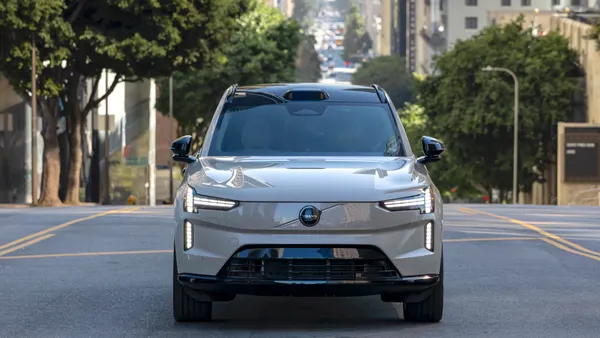Editor's note: This story is part of the WardsAuto digital archive, which may include content that was first published in print, or in different web layouts.
Automotive Suppliers Experiencing Growth or Even maintaining stability are hard to find in these troubled times.
Like other Tier 1 suppliers, Robert Bosch GmbH has been downsizing. Its current North American headcount stands at about 25,000 after the elimination of more than 2,000 positions.
But Bosch smartly identified electronics as a sector that would survive. Germany's largest supplier invested $37.5 million in a new electronics tech center in Plymouth, MI, to consolidate engineers from other facilities, mostly from the company's North American headquarters nearby in Farmington Hills.
The new facility opened in 2007 and employs 400 people. In April, that number climbs to 700 as more engineers move to Plymouth from Farmington Hills, says Tim Frasier, Bosch's new regional president-automotive electronics North America.
At that point, Bosch's electronics engineering for all of North America will be under one roof for the first time.
The additional staff is attached to Bosch's chassis electronics business, dedicated to antilock braking and electronic stability control, which remain core to the Bosch portfolio.
About 30% of new vehicles in the U.S. were equipped with ESC in 2006, and that number is steadily climbing as auto makers meet the federal requirement that all light vehicles have the technology on board by 2012.
To accommodate the chassis electronics operations, Bosch is expanding its Plymouth technical labs to allow for more on-vehicle testing of components, Frasier says.
A roadway is being added through the back of the building, along with an attached secure parking area, so engineers can drive development vehicles short distances and do calibration work. Ten hoists are being moved from Farmington Hills to enable on-vehicle hardware modifications.
The Plymouth facility coordinates its operations with design and development facilities in other customer locations such as Germany, China, Japan, India and Australia.
Frasier also reports directly to Bosch in Germany about the U.S. electronics business. Although volumes are down, he sees “glimmers of hope” in an otherwise depressed car market.
“Our automotive electronics business has been consistently growing,” Frasier says. He declines to disclose specifics about the profitability of Bosch's North American electronics business, as the company does not report those figures by division.
In an increasingly global industry, discerning profitability by region is becoming extremely difficult because far-flung operations now are so intermingled.
Frasier cites a customer program for a remote keyless entry system that started production last year in North America. Bosch engineers in Michigan worked closely with the customer, while Bosch colleagues in Australia pitched in with transmitter designs.
The component is manufactured at a Bosch plant in China based on a production model created at the Bosch electronics plant in Juarez, Mexico. “What we started producing in Mexico, we're also mirroring that in China,” Frasier says.
A year ago, Frasier would have said Bosch's North American operations were hurting more acutely than others around the world. Europe didn't begin to suffer until second-half 2008.
“Now, I think it's hit all the regions,” Frasier says of the downturn. But he remains optimistic. “We still see growth in the Asian market, in China,” he says of the electronics sector.
In the U.S., Frasier is glad to see the government attempting to stimulate the economy. “The right steps are being made to shore up the financial institutions and the credit market,” he says.
Meanwhile, the Plymouth campus is planned to accommodate up to 3,000 workers. Frasier will know the recession is over when hiring those extra people appears more tenable.









